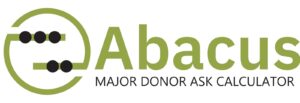The health and vitality of the nonprofit sector and the growth of philanthropy have never been more influenced by federal and state political climates than they are today. As the 3rd, private, and government sectors plan for their economic futures, they face great uncertainty given the wide range of theories and options for addressing critical issues on the table as part of the upcoming 2012 election. These include, among many others, government tax policy, deficit management, a changing global economy, and paralysis on Capitol Hill and on the statewide level as well.
While I do not play the horses, I still like to handicap my “bets” when helping my NPO clients plan for the future. This requires two perspectives. On a micro level, many well run advancement programs ”value” their donor pipeline for the coming year or two to predict revenues. They look at likely donors, their philanthropic capacity, relationship to the organization, and other variables to predict a likely gift range. To do macro level handicapping – among other larger market forces – we need to consider how the Democratic Party, Republican Party, and the Tea Party would shape our economy moving forward.
Based on their platforms and motivations, the three parties present the following as financial and social priorities:
The Democratic Party favors government to serve the public and address problems; targeted tax strategies; wealth decentralization; regulation to level the economic playing field; and, increased government efficiency.
The Republican Party favors less government to serve the public and address problems; general tax reduction; wealth consolidation; less regulation to spur free enterprise; and, increased government efficiency.
The Tea Party favors much less government to serve the public and address problems; significant tax reduction; a yet-to-be determined stand on wealth consolidation; much less regulation; and, increased government efficiency.
PLEASE CLICK HERE to see a matrix which presents one way to view the parties’ perspectives through the lens of philanthropy…
And speaking of handicapping, the odds are great that some readers will disagree with these characterizations and the matrix. We can all agree, however, that the outcome of the 2012 election will dramatically affect our lives, livelihoods, and the NPOs that are most important to us. I welcome your comments and feedback, as it will contribute to this critical conversation. I also encourage you to make comments, insert your perceptions on this matrix, reflect upon them, share them with your staff and volunteers, and sort out how you and your NPO will navigate the roiling waters of our political marketplace … to support the greater good.
Your Takes:
1. To be the best you can be in your job, keep abreast of the local and national political landscape.
2. A critical part of planning during these times of uncertainty includes integrating local and national political and economic issues into the strategic discussions you have with your board and other key constituents.
3. Represent the position and views of your NPO and your sector to policy and lawmakers… for the greater good.



Pingback:Hate-Speech “Sells” in Today’s Politics - Will it Work in Nonprofit Fundraising? | Copley Raff